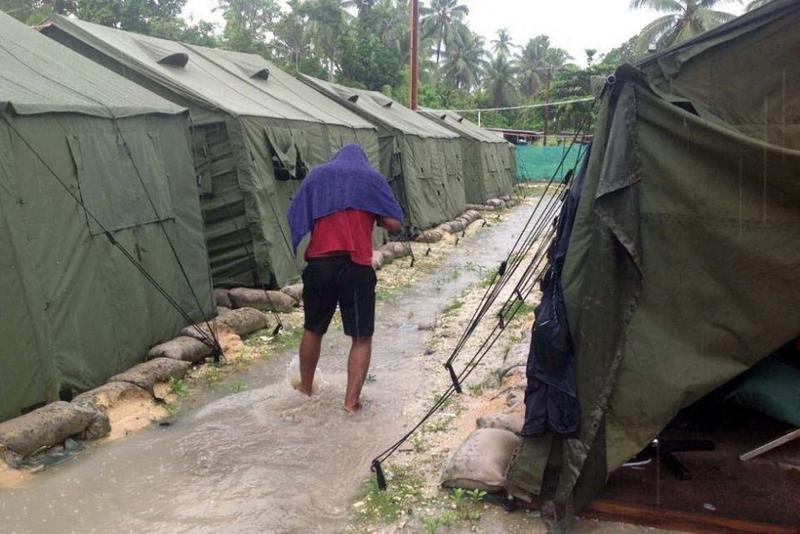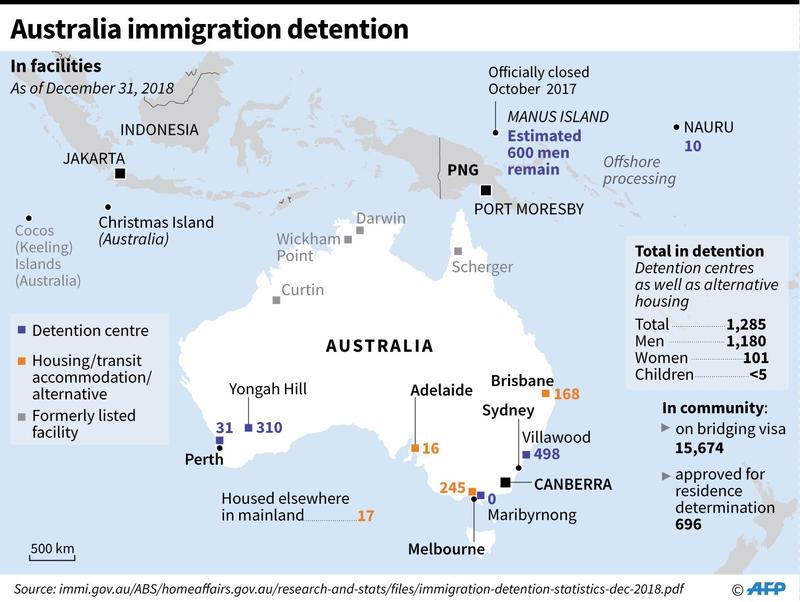 An undated photo obtained from the Refugee Action Coalition on Feb 18, 2014 shows a man walking between tents at Australia's regional processing center on Manus island in Papua New Guinea. (HANDOUT / REFUGEE ACTION COALITION / AFP)
An undated photo obtained from the Refugee Action Coalition on Feb 18, 2014 shows a man walking between tents at Australia's regional processing center on Manus island in Papua New Guinea. (HANDOUT / REFUGEE ACTION COALITION / AFP)
CANBERRA - Australia will stop detaining asylum seekers in Papua New Guinea at the end of December, the two countries said on Wednesday, as Canberra shuts one of two remote Pacific detention centers that have been criticized by the United Nations.
Under Australia's hardline immigration policies, asylum seekers attempting to reach the country by boat have since 2013 been sent to detention centers on Papua New Guinea's Manus island and the South Pacific island nation of Nauru
Under Australia's hardline immigration policies, asylum seekers attempting to reach the country by boat have since 2013 been sent to detention centers on PNG's Manus island and the South Pacific island nation of Nauru.
"The Australian government regional processing contracts in PNG will cease on 31 December 2021 and will not be renewed," a joint statement read.
PNG had been pressing Australia to close the center.
ALSO READ: Australia to ease international border curbs from November
At its peak, Australia detained about 1,000 men on Manus island and while most have left, advocates said just over 100 remain as they either await resettlement to a third country or have had their asylum seeker applications refused.
Australia said those who will remain can transfer to Nauru or stay in PNG where they can seek citizenship.
Australia and Nauru earlier this year extended an agreement to allow asylum seekers to continue being held on the tiny island.
The United Nations and aid agencies have criticized conditions on Manus and Nauru, citing human rights abuses and called for their closure.
READ MORE: UN refugee agency scorns Denmark's law on asylum claims
 Graphic showing Australia's immigration detention facilities, as of June 17, 2019.
(CREDITJOHN SAEKI / AFP)
Graphic showing Australia's immigration detention facilities, as of June 17, 2019.
(CREDITJOHN SAEKI / AFP)


